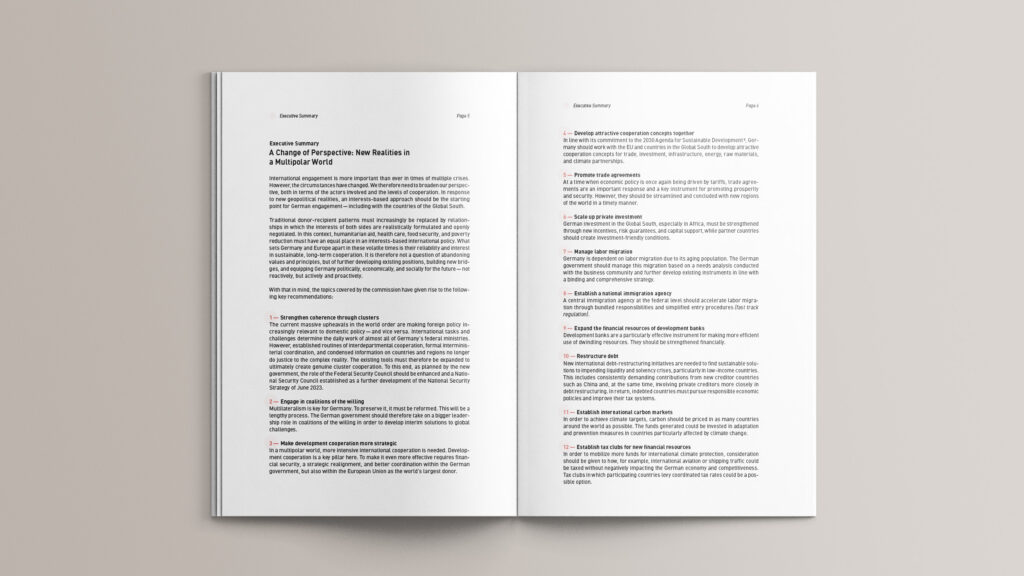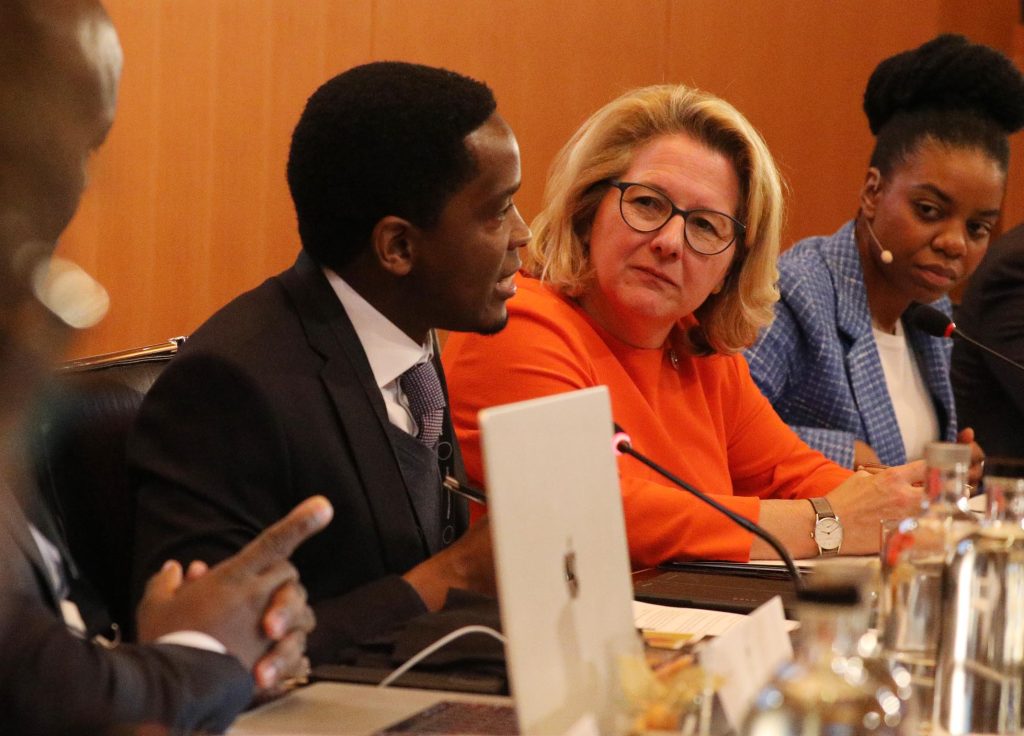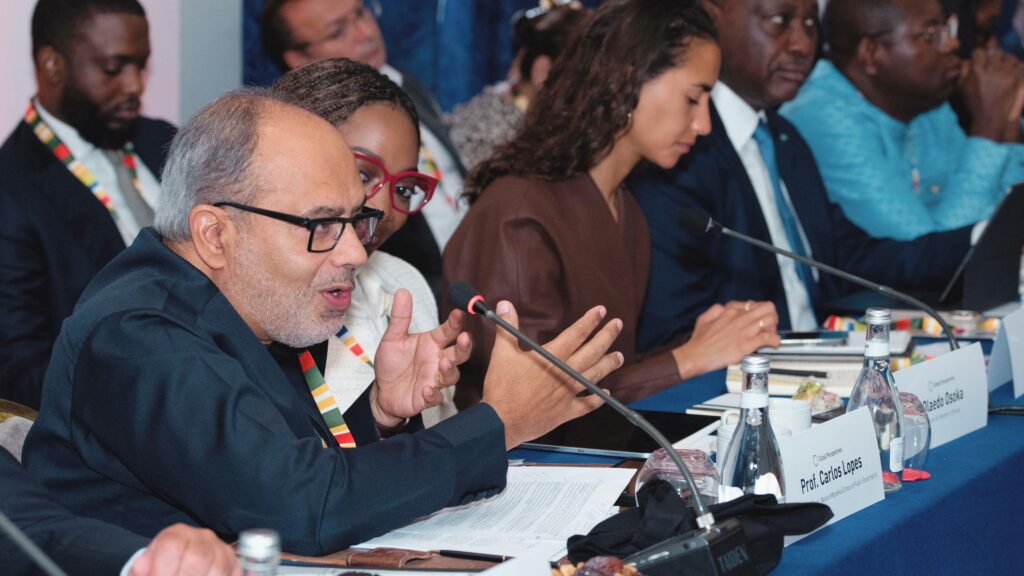Publications
Growing Africa’s Future
Five Themes to Advance Food Sovereignty on the Continent

Growing Africa's Future
Issued on the occasion of The Africa Roundtable “Growing Africa’s Future: Advancing Food Sovereignty through Agricultural Innovation” in May 2024, authored by partner McKinsey & Company
Publications: Growing Africa’s Future
May 7, 2024
Africa has abundant resources to support growth, including untapped arable land. However, food sovereignty – the right of people to define and control their own food and agriculture systems – is not a reality for more than 300 million Africans who are severely food insecure. Climate-related volatility is increasing, and many of these food-insecure people are also among the most vulnerable to its impacts. As the population continues to grow rapidly, the need to sustainably increase the continent’s food supply is critical. Technological innovation, including AI, is not a silver bullet to these challenges, but can support the goal of food sovereignty by focusing on targeted interventions to accelerate supply and unlock untapped resources, including land. While the paper acknowledges the impact of demand-side interventions, such as the inclusion of more locally grown and indigenous foods in consumers’ diets, it focuses primarily on supply-side innovations, including fostering technology collaborations in the sector.
The five themes
Food Sovereignty Policies
To meet the world’s future food, fuel and nature needs, food sovereignty policies can reflect the central role Africa’s land resources could play. The near-term investment opportunity here is to bring underutilised and degraded land into sustainable agricultural production.
Local Production and (intra-Africa) Trade
To achieve self-sufficiency, Africa can focus on both local production and (intra-Africa) trade. In the near term, this offers an opportunity to build on the existing momentum of the AfCFTA for intra-African trade and to promote competitive global trade in export commodities.
Climate Action and Sustainable Agribusinesses
To achieve food sovereignty, Africa can take urgent climate action and build sustainable agribusinesses. Building on the existing momentum of the AfCFTA for intra-Africa trade and boost competitive global trade for export commodities offers a near-term investment opportunity. In addition, the unproved viability of some of the key innovations, such as green ammonia, this is a long-term prospect.
New Value Streams
To unlock new value streams and improve controls in food systems, investment is required to reduce and repurpose food waste and agricultural byproducts. Limited proven or scaled solutions and the need for infrastructure and supply chain improvements make this a long-term opportunity.
New Labor-Intensive Forms of Production
To fully harness Africa’s demographic dividend in agri-food systems may require new labor-intensive forms of production. The scale of change and the pace of demographic change make this a longer-term opportunity.
Contact Persons
Stephanie Igunbor, s.igunbor@globalperspectives.org
Supported by
Publications
Our collaborative publications aim to stimulate questioning and discussion. They are the result of a deep engagement with the focus topics of our work and enable a fact-based dialogue.
Program Archive
Amid shifting global dynamics, investing in Africa’s strengths in renewable energy and climate action is more urgent than ever. The action recommendations of the eighth conference.
How can Germany build strong, sustainable relationships with countries in the Global South that benefit both sides? At HSC 2025, we continued the dialogue on the Commission's recommendations.
At the eighth edition of The Africa Roundtable, we discussed how to rethink and strengthen sustainable finance in Africa through strategic partnerships with Europe.
The Commission “A Changing World – Germany and the Global South” presents its recommendations as a basis for addressing key strategic decisions facing Germany today.
How can Germany's international cooperation become more sustainable? After a year of intensive work, the Commission presented its final report recommendations for discussion.
DPI can help bring large populations online, driving economic growth. We highlighted the range of benefits of this new concept at our follow-up to the seventh edition of The Africa Roundtable.
The Commission "A Changing World - Germany and the Global South", chaired by Annegret Kramp-Karrenbauer, presents its first impulses ahead of the German federal elections in 2025.
With data emerging as the key driver of future economic power, Africa's digital transformation is critical and urgent. The action recommendations of the seventh conference.
The seventh edition of the Africa Roundtable focused on the importance of digital infrastructure and data sovereignty for the digital revolution on the African continent.







